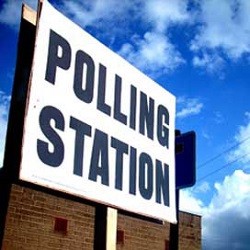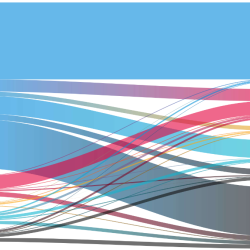News - BES Impact
One of the priorities of the 2015 British Election Study team is to maximize the use and reach of BES data and BES research findings. BES data provides in-depth understanding of the way representative democracy functions in British elections. It provides unique insights into British public opinion, participation, attitudes towards politics and explanations of electoral outcomes. The 2015 BES team is maximizing the usefulness and impact of the BES via:
• An extensive programme of events between 2013 and 2017 in England, Scotland and Wales.
• The release of BES findings for dissemination via national media outlets.
• Expert commentary in national and international media.
• Partnership with the Electoral Commission to study individual electoral registration effects, culminating in a joint report.
• A BES data playground to allow any interested user to access and analyse BES data online (coming soon). We expect this tool to be particularly useful to non-academic researchers in government, political parties, campaigns, charities and think tanks, and to journalists. This will also be of special use to undergraduate and graduate students wishing to explore BES data.
• An Advisory Board with significant expertise in election studies and research into electoral behaviour.

The effects of voter ID requirements on British elections
Professor Ed Fieldhouse, Co-Director of the BES, and Dr Ralph Scott use British Election Internet Panel data to assess which voter groups are without an accepted forms of voter ID and how the Elections Act 2022 impacted turnout in recent local and national elections. Read…
Reflections from the BES Team
In celebration of the 60th Year Anniversary of the British Election Study, members of the BES Leadership Team shared what they consider to be the highlights and most important impacts of the British Election Study. Professor Jane Green, Co-Director of the BES, said: ‘In…
60th Year Anniversary Lecture – British Election Study
At the British Academy, Professor Edward Fieldhouse delivered the 60th Year Anniversary Lecture for the British Election Study (BES), on Monday 9th September. Paul Brand, ITV’s UK Editor, presenter of ITV Tonight and LBC, chaired the event and began by sharing just how vital the…

Back to the future: The similarities between 2015 UKIP and 2024 Reform...
James David Griffiths, Jane Green, Ed Fieldhouse Using the recently released pre/post-election waves of the British Election Study Internet Panel, members of the team explore how we can use it to help us understand the 2024 UK General Election – now focusing on the performance…

The Liberal Democrats in 2024: Efficiency and tactical voting
James David Griffiths, Jane Green, Ed Fieldhouse Ahead of the release of the pre/post-election waves of the British Election Study Internet Panel, members of the team explore how we can use it to help us understand the 2024 UK General Election – starting with the…
Celebrating 60 Years of the British Election Study
The British Election Study (BES) is one of the longest running election studies world-wide and the longest running social science survey in the UK. Now in its 60th year, we look at the contribution the BES makes to the understanding of political attitudes and electoral behaviour…
British Election Study Team Awarded First Ever Pippa Norris Prize
Professors Edward Fieldhouse, Jane Green, Geoffrey Evans and Drs Jonathan Mellon and Chris Prosser, supported by Dr Jack Bailey, have been awarded the new Pippa Norris Prize from the Political Studies Association. The prize recognises a research team that has made an outstanding contribution to…
What’s next for British elections?
At a Westminster briefing event held on 20 March in partnership with UK in a Changing Europe (UKiCE), Professors Edward Fieldhouse, Jane Green and Dr Jack Bailey from the British Election Study’s (BES) scientific team shared early findings from the most recent BES data (December…
Announcing the BESt article award winners
The British Election Study are delighted to announce that A tale of two peoples: motivated reasoning in the aftermath of the Brexit Vote by Miriam Sorace and Sara Hobolt (published in Political Science Research & Methods) is the winner of the inaugural British Election Study…
Publications using BES data
British Election Study users have recently published some excellent research, using the unique data to provide insight into a tumultuous period in British politics. Reflecting this, we have updated our list of publications using data from the current BES, which you can find here. We…
